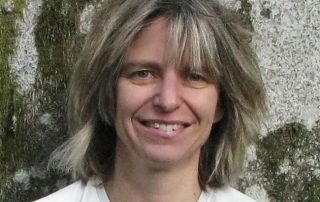Human Relationship as Land Ethic
The En’owkin Centre, a First Nations directed educational center, hosted the 2002 Bioneers National Conference about Native insights into land ethics. This particular speech was given by Jeannette Armstrong, an elder, environmentalist, and teacher of the En’owkin people. Her people are the first and ongoing custodians of this transboundary territory of the Northwest Plateau region. Armstrong comes from a long line of hunter-gatherers and grew up with her extended family on a remote reserve, learning her people’s traditional language and practices. In her speech, she shares observations on human relationships with nature and each other, illustrating that “how we look at each other impacts how we look at the land.” Okanogan peace practices are central to building reciprocal relationships, conflict resolution, and Indigenous practices of democracy and community. The deep, relational Okanogan understanding of the land expresses that humans are not just part of the land, but are the land. The Okanogan word for the human body contains the word for the land, underscoring the philosophy that we are one. Armstrong also speaks to the importance of including minority voices in community discussions as they highlight missed perspectives and issues and bring balance to conversations. She explains that rather than money and power, it is people and community that will sustain us and bring comfort and security. Armstrong has also been involved in seed collection, contributing to growing and revegetation projects centering ecoliteracy, outside time and community. Such processes are deeply healing for people from many backgrounds and help build connected, resilient communities.
















